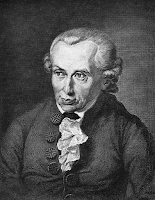How can you read Joshua's conquest narrative alongside the story of liberation in Exodus?
God liberated the oppressed Israelites from slavery in Egypt—an Exodus story of freedom. Yet, shortly after, they became oppressors themselves, commanded to conquer Canaan by destroying everything. Is this a "justice" story? Whose story is it? Who benefits? Can we ignore the cries of innocent people in Canaan?
Robert Allen Warrior, an American Indian scholar, criticizes the popular reading of Joshua’s conquest because it overlooks justice for the oppressed. He points out that European settlers arriving in America sought freedom from oppression but instead perceived God’s promise of a new land as justification for oppressing Native Americans. He discusses this in his article, "Canaanites, Cowboys, and Indians: Deliverance, Conquest, and Liberation Theology Today."
How can "freedom-seeking people" become oppressors? Do we think God is callous enough to endorse the deaths of innocent people? Is the God of Israel a tribal deity?
Some interpret the promise and conquest stories to support covenantal theology, as in Abraham’s story. But such interpretations fail to justify the innocent deaths in Canaan. Others read these stories to bolster Jewish political power or independence. Some Christians today view them spiritually. However, this does not justify sacrificing “others” in God's name. No one is predestined for damnation. Furthermore, there are no definitive historical records of Joshua’s conquest—these stories are often crafted to convey a message. Objective readers must remain aware that these narratives may represent only one side of the story.
God is beyond the Bible; God cannot be confined to a particular story or human understanding. With this in mind, biblical stories demand critical evaluation rather than uncritical acceptance. Perhaps, even if imperfect, we can discern God's care for his covenant people.
Matthew 15:21-28 — A Critical Look
Does Jesus test the Canaanite woman’s faith? I would say "no." The story illustrates Jesus's harshness, as he makes derogatory remarks, treats the woman unkindly, and initially claims that his mission is exclusively for the Jews. Earlier, in Matthew 10:5-6, Jesus limited his mission to Israel.
However, the woman challenges Jesus gently and persistently, maintaining her faith that God loves her and her daughter. Her faith is truly challenging, rooted in the belief that she deserves God's help. Ultimately, Jesus grants her request, healing her daughter, though whether this indicates a genuine change of heart remains uncertain.
To understand this story, consider two contexts: Jesus’s own time and mission, and the context of the Matthean community. In his historical setting, Jesus, as a Jew, was grappling with expanding God's good news to the Gentiles. Reading the story this way means acknowledging his struggle, yet not accepting his harsh attitude toward Gentiles or the woman. Some scholars suggest that Matthew, in editing Mark 7:24-30 (the story of the Syrophoenician woman), added details reflecting Jewish exclusivism, highlighting the community’s challenge in including Gentiles. The community’s main concern was the boundaries of their fellowship—whether to open the door to outsiders. Even so, the harsh treatment of the woman and the exclusivist attitude are troubling.
In both contexts, the story invites us to reflect on the struggle to expand God's inclusive love, while also questioning the ways exclusion and harshness are portrayed.








